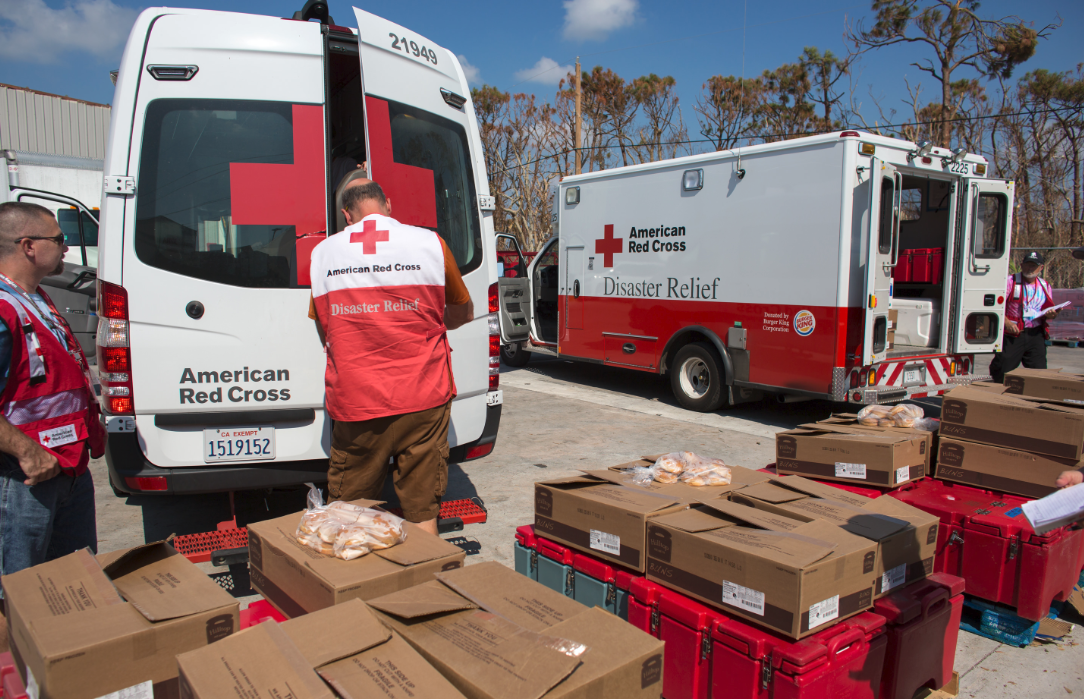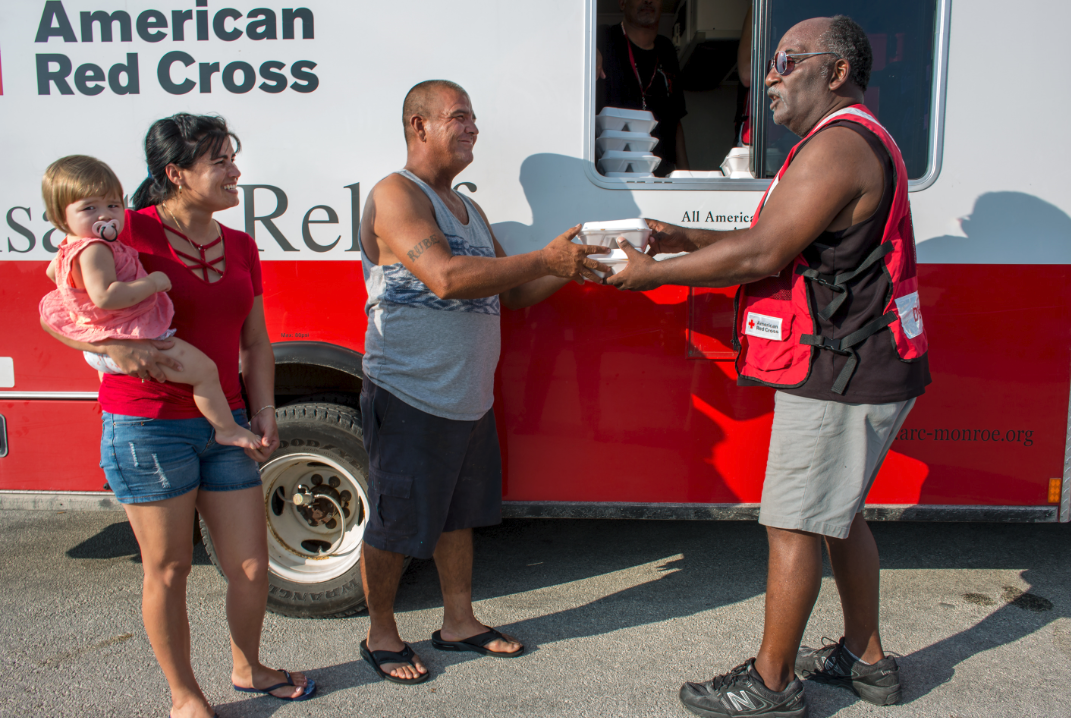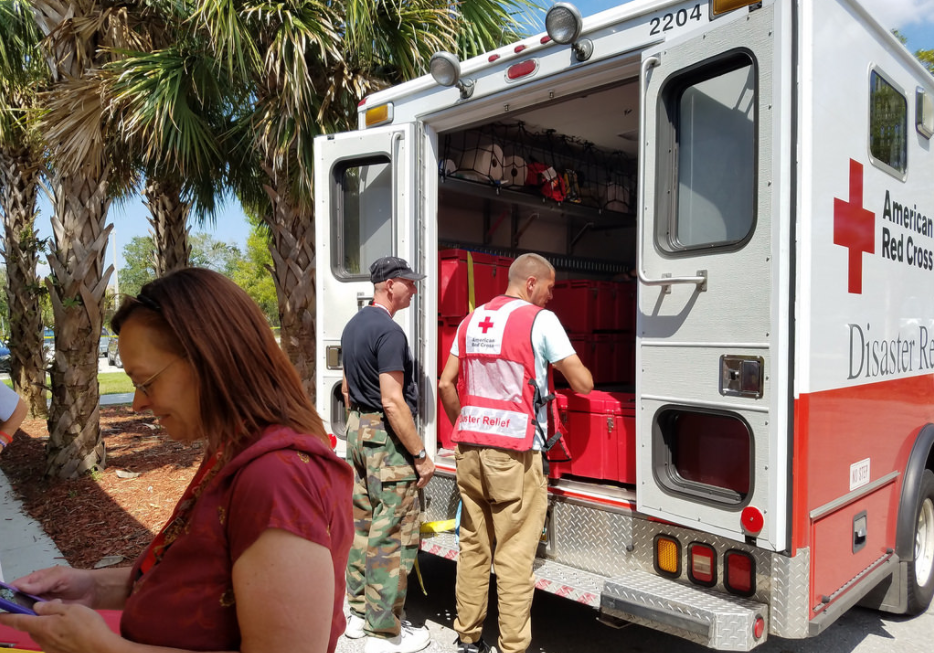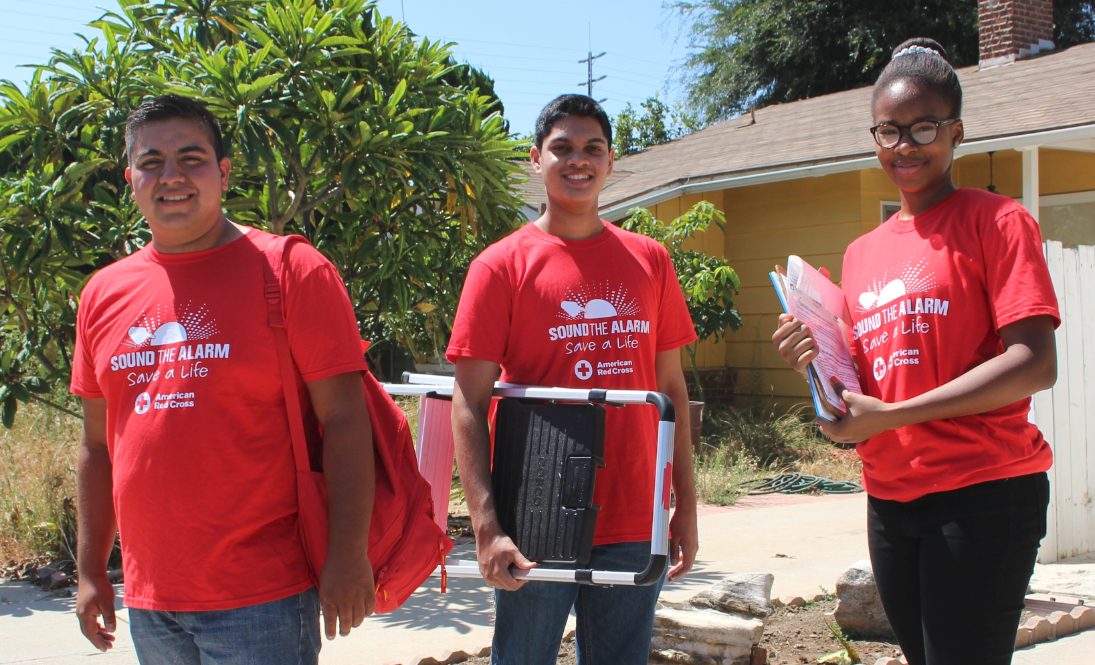By California Safe Corps/Americorps Member, Earl Torres
Recently, I returned from a two week deployment, assisting with Hurricane Irma relief efforts on the east coast. What surprised me most on deployment was the immense amount of unity the clients and the volunteers exhibited in such a stressful time. I was tasked by DCS as a Shelter Associate and Mass Care worker in central Florida, and my intention was to help and assist in any way I could. This was my first deployment, so I was naturally nervous and I had no expectations. I was also curious as to how a fresh, barely-skilled graduate could be of any real service.
 In one of the shelters, there was a large influx of Spanish and Portuguese residents. English being my only fluent language, one of the fellow residents became my hero. Robert was fluent in over four languages and ended up helping me more than I could do for him! The altruism, it seemed wasn’t only within the volunteers but the clients themselves— like Leane, who was both affected by the storm and a Red Cross volunteer. I met her while I was volunteering at the Orlando headquarters organizing the paperwork. She was a local administration assistant for over twenty years, and had her roof severely damaged by a tree trunk, post-Hurricane Irma. By accepting her tech-savvy talents, the Red Cross office gave her the opportunity to help not only herself, but also help others. On top of it all, her smile and cheery attitude gave proof of kind humanity to everyone in office.
In one of the shelters, there was a large influx of Spanish and Portuguese residents. English being my only fluent language, one of the fellow residents became my hero. Robert was fluent in over four languages and ended up helping me more than I could do for him! The altruism, it seemed wasn’t only within the volunteers but the clients themselves— like Leane, who was both affected by the storm and a Red Cross volunteer. I met her while I was volunteering at the Orlando headquarters organizing the paperwork. She was a local administration assistant for over twenty years, and had her roof severely damaged by a tree trunk, post-Hurricane Irma. By accepting her tech-savvy talents, the Red Cross office gave her the opportunity to help not only herself, but also help others. On top of it all, her smile and cheery attitude gave proof of kind humanity to everyone in office.
But, not only do the clients deserve recognition for their resilience, I have extreme praise to the Shelter Managers who, I believe, have the hardest job. They need to be the liaison between headquarters and those on the field, while trying to balance the volunteers and the clients simultaneously. David, my Shelter Manager for a shelter of over 200 residents, played mediator between some of the local health services  personnel and individuals. At one point, two sleep-deprived and distressed EMT’s didn’t agree on the care of an elderly gentleman. David remained impartial, neutral and very calm to ease the frustration between both parties. With David’s help, they easily compromised on a solution. A shelter, therefore I believe, is only as good as its shelter manager (and is in fact a reflection of their work ethic).
personnel and individuals. At one point, two sleep-deprived and distressed EMT’s didn’t agree on the care of an elderly gentleman. David remained impartial, neutral and very calm to ease the frustration between both parties. With David’s help, they easily compromised on a solution. A shelter, therefore I believe, is only as good as its shelter manager (and is in fact a reflection of their work ethic).
Looking back, it was a hard adjustment. My “city-boy” lifestyle found the tasks tedious towards the end of the week: all the dishes washed, food served, the papers registered, client inquiries, and the late night shift desperation to stay awake. But, I l learned a lot about myself and about community service. Now, I have a stronger inclination of how I want to serve others, how to best act altruistically, and what that means for my next step in life. I thought that my deployment was to empower the community through action. Instead, the community empowered me.





